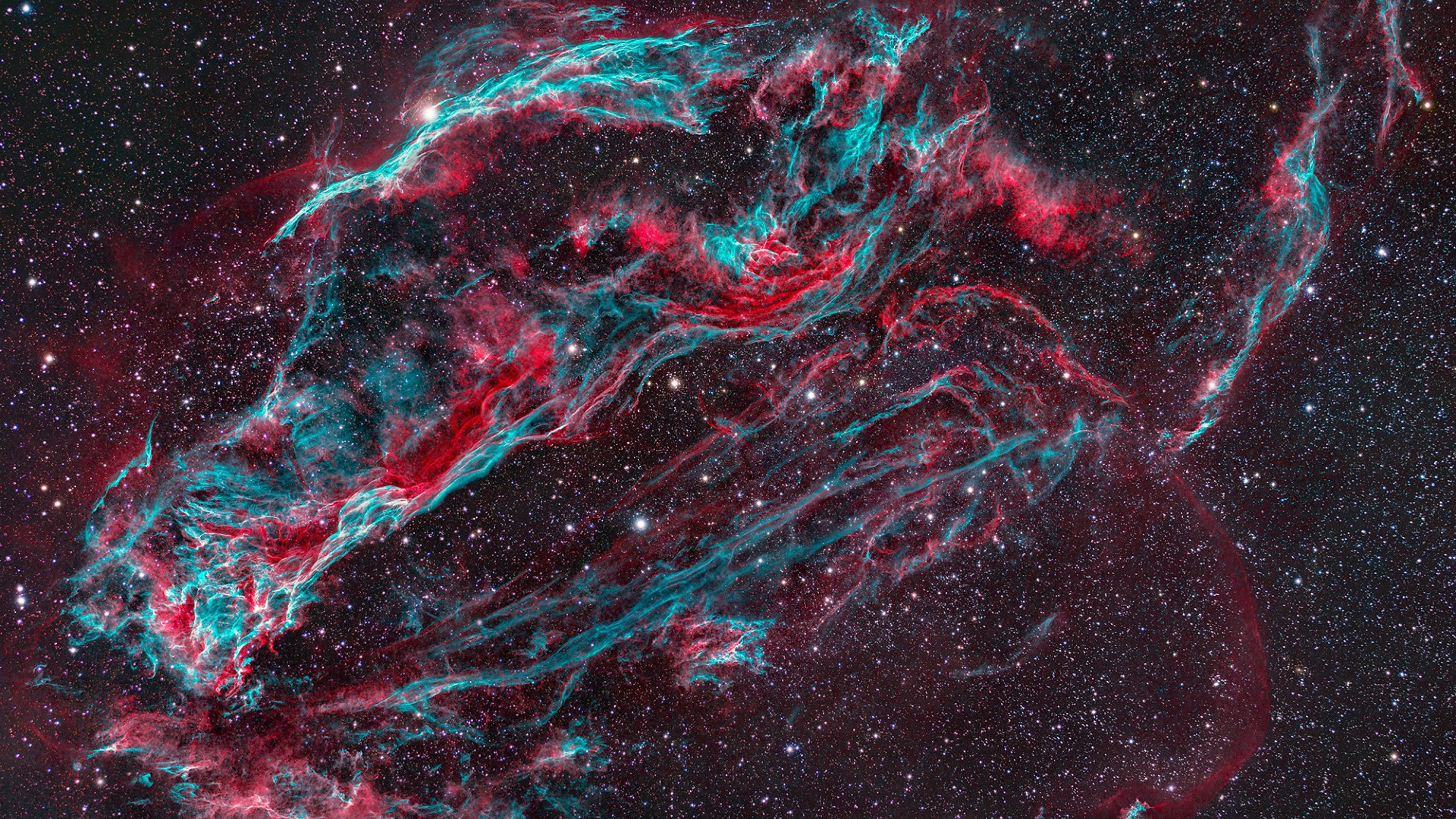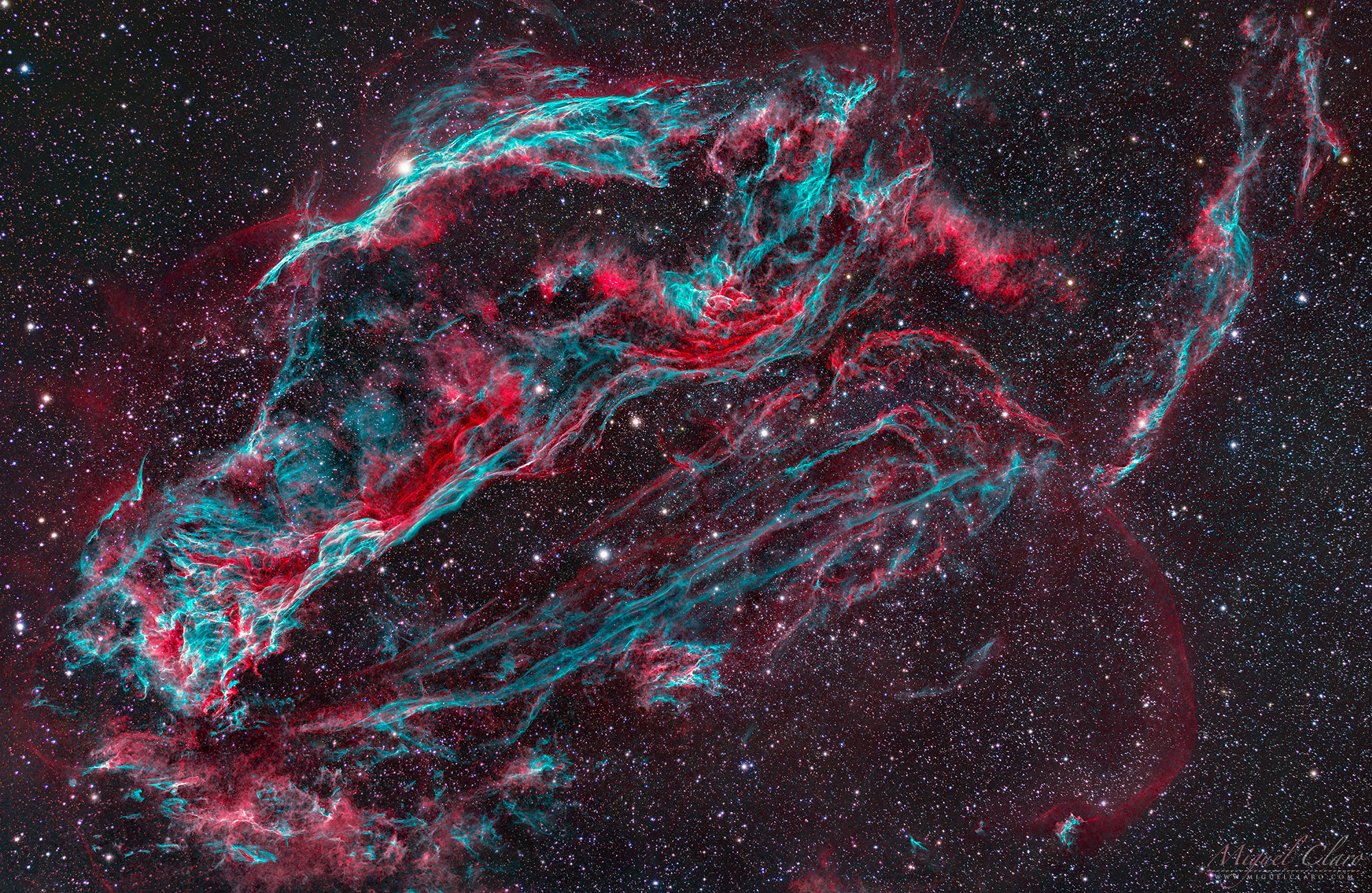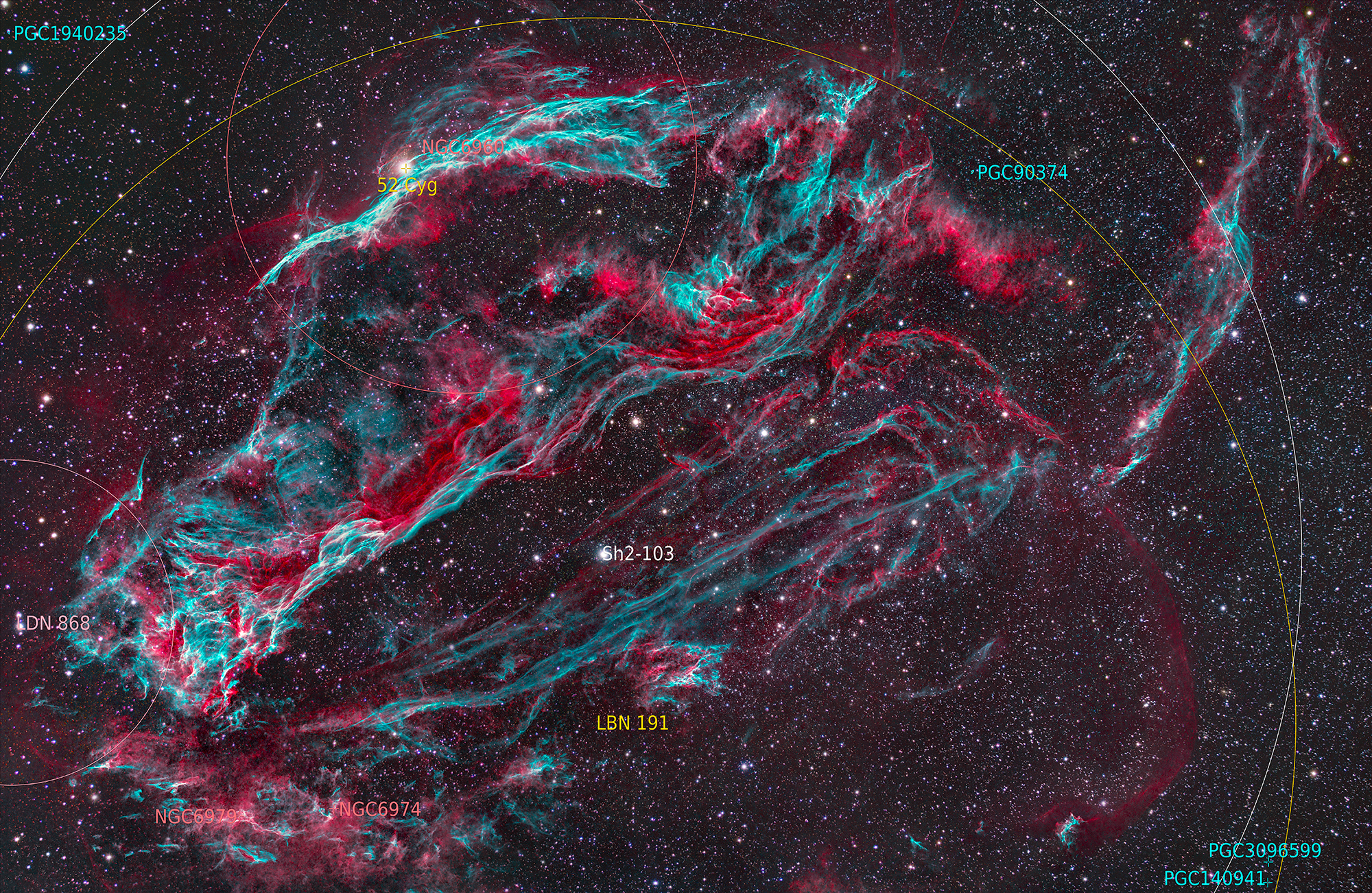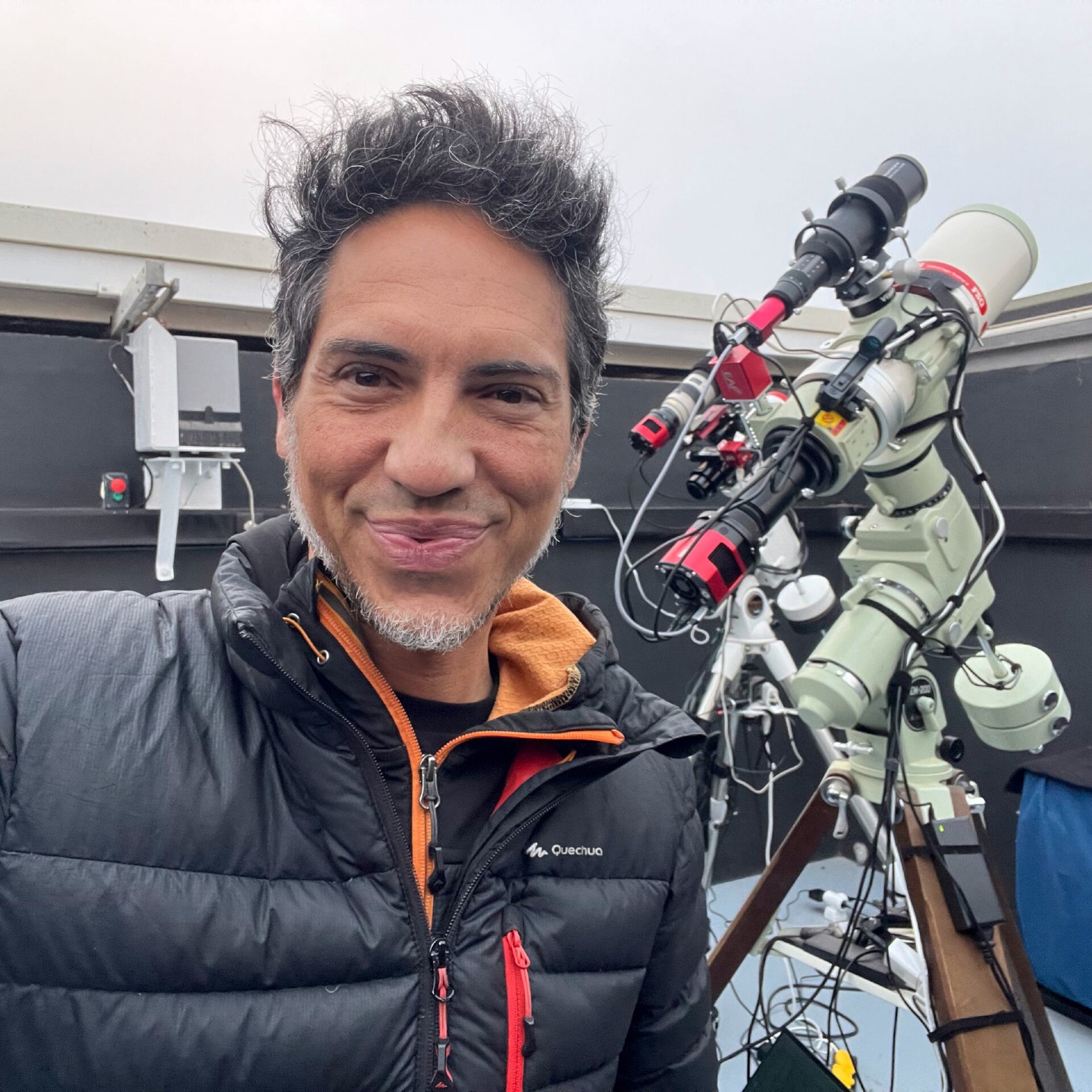A star exploded 10,000 years ago and left us with the gorgeous Veil Nebula (photo)
The Veil Nebula, also known as the Cygnus Loop, is the result of a supernova remnant located toward the constellation of Cygnus at about 1,400 light-years away.

Miguel Claro is a professional photographer, author and science communicator based in Lisbon, Portugal, who creates spectacular images of the night sky. As a European Southern Observatory Photo Ambassador and member of The World At Night and the official astrophotographer of the Dark Sky Alqueva Reserve, he specializes in astronomical "Skyscapes" that connect both Earth and the night sky.
The Veil Nebula, also known as the Cygnus Loop, was created when a massive star went supernova and exploded some 10,000 years ago in the constellation of Cygnus, the Swan, about 1,400 light-years away. The Veil Nebula was discovered by astronomer William Herschel on Sept. 5, 1784.
The explosion that created the nebula sent material into space, creating the tangled filaments of glowing ionized gas we see today. The Veil Nebula currently measures some 70 light-years across and is still expanding. As seen from Earth, the Veil Nebula spans roughly six diameters of the full moon in the night sky.
Related: Hubble telescope reveals a gorgeous, detailed new view of the Veil Nebula

In this image, the reddish hues are created by atomic hydrogen gas while the blue-greenish hues represent atomic oxygen gas.
This stunning deep space scene also includes the Witch's Broom Nebula (NGC 6960) where the bright star 52 Cygni can be shining, and Fleming's Triangular Wisp (NGC 6979), as well as NGC 6974, a large nebula filament at the northern edge of the loop of the Veil Nebula.
The annotated version below was produced with the PixInsight script and drew upon several known catalogues to identify the main objects in the image.
Breaking space news, the latest updates on rocket launches, skywatching events and more!

The image was captured from the Dark Sky Alqueva observatory in Portugal, using different wavelengths between Ha, OIII and RGB light, using the Anit-Halo PRO Dual-Band 3nm and a Poseidon-C Pro Camera from Player One Astronomy.
To see more of Miguel Claro's work, please see his website or follow his stories on Instagram at www.instagram.com/miguel_claro .
Join our Space Forums to keep talking space on the latest missions, night sky and more! And if you have a news tip, correction or comment, let us know at: community@space.com.
Miguel Claro is a professional photographer, author and science communicator based in Lisbon, Portugal, who creates spectacular images of the night sky. As a European Southern Observatory photo ambassador, a member of The World At Night and the official astrophotographer of the Dark Sky Alqueva Reserve, he specializes in astronomical skyscapes that connect Earth and the night sky.

